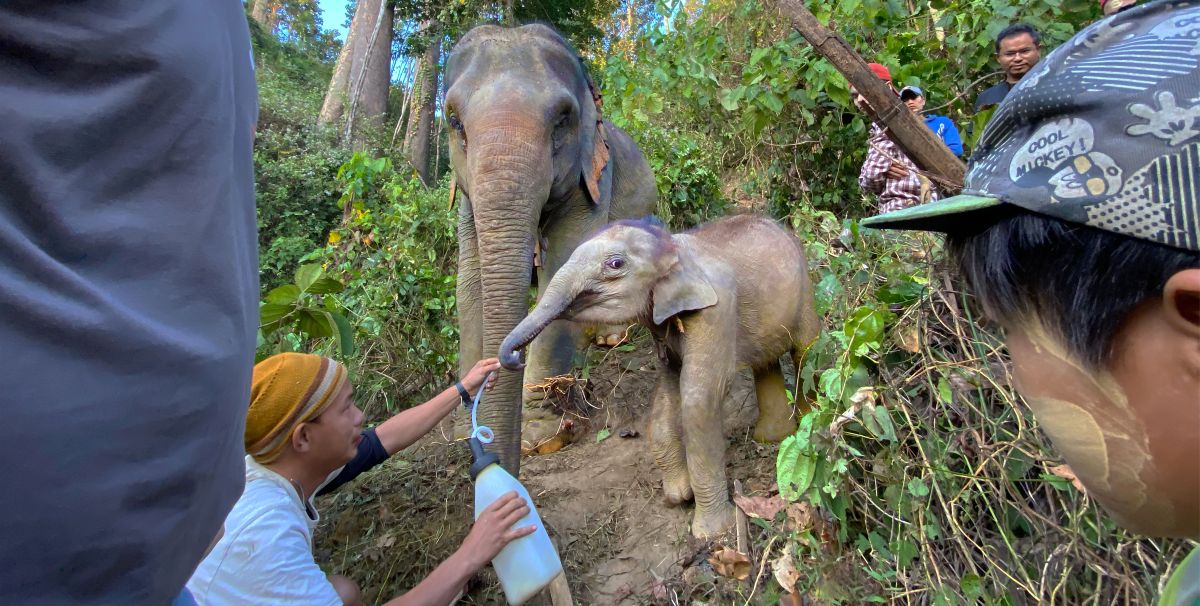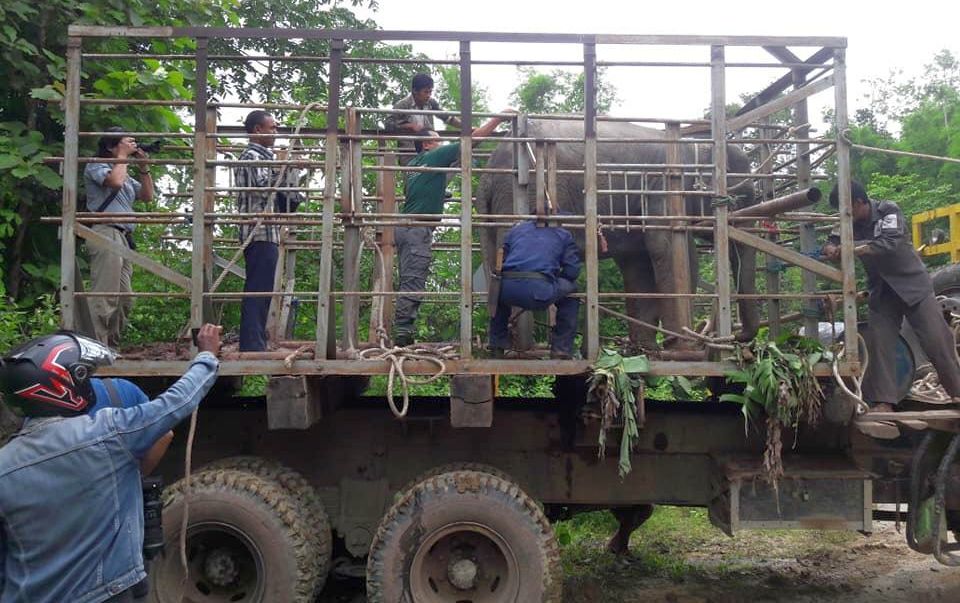Deep in the jungles of Myanmar, at the country's only elephant hospital, your support continues to make a difference – even amid the COVID-19 outbreak.
Prior to the lockdown, our International Director of Large Animals, Fran Compostella travelled to the remote hospital to assist in its sole purpose of treating and rehabilitating sick, weak, and vulnerable domesticated elephants.

Here in Myanmar – in a country that's home to the world's highest number of captive elephants – most captive elephants live in government-owned camps, where they have been used to; extract wood from forests, transport people and goods, and participate in ceremonies and religious festivities. Over generations, this has made elephants an integral part of the Burmese people's way of life.
In 2016, a logging ban was placed across most of Myanmar's wilderness, in order to avoid excessive deforestation and preserve the environment. While this precautionary measure was welcomed, it meant that nearly half of the working elephants and their carers were left without a job.
Without income, the welfare of the elephants and families relying on them quickly began to suffer. This is why we stepped in.

By providing veterinary training and supplies to the hospital, we've been able to make huge improvements in the lives of these families – both the elephants and their humans.

Let us tell you more about what's happening on the ground in Myanmar right now...
THE IMPACT OF COVID-19
Much like the rest of the world, Myanmar is in lockdown. While there are relatively few cases of coronavirus reported in the country, the concern is the vast majority of the population lives in remote areas with no access to water, electricity, phone signal or basic health care – and so the impact on human lives could be high.
Thankfully, living in pockets of isolated villages may also have helped slow the spread of the virus and thus protected people in remote areas, including those we work with at the elephant hospital. We're so thankful all our teams and supporters are doing well.
THE POWER OF EDUCATION
In February 2020, Dr. Fran facilitated a four-day elephant health workshop at the hospital with 37 veterinarians and 45 oozies, or carers, who live alongside the elephants. Together they shared updates on emerging diseases and health concerns, as well as exchanged experiences and explored practical ways to treat elephants in the field. Everything from using sunlight to light up microscope slides, to assessing stress levels and deadly diseases from fecal samples.
Now with social distancing in place, knowledge sharing must continue, but we must adapt, and adopt different methods. Fran's lecture slides and training videos coupled with the local's eagerness to expand their standards of care, have made distance learning possible.
As part of the lectures, Fran is sharing farm animal husbandry and welfare skills to support the community in raising a few pigs and chickens in a healthy free-range system. This will not only an attempt to reduce the pressure on the jungle but also minimise interactions with outsiders during the lockdown.
The adults aren't the only ones who've had to adapt and engage in distance learning. Next door to the hospital is a single room that serves as a tiny school for local village children. During her visit, Fran was able to provide the students with extra reading materials to keep them excited about learning.

IMPROVING PATIENT CARE
The hospital is positioned deep in the jungle and is currently only reachable by foot. Here, the staff sleep in bamboo huts under mosquito nets covering mattresses, which are laid on the floor. The elephants in critical care are kept under the team's watchful eye in large paddocks, whilst the rest roam free in a large conservation area nearby and are brought in for treatment as necessary. While the hospital may seem rudimental, it is a giant step forward in animal welfare.
The Burmese veterinarian's and carers' knowledge of elephant husbandry is immense, but their veterinary skills are lagging behind. By engaging and supporting the training of local staff in basic veterinary care, we will make it possible for them to treat and rehabilitate animals presented to the hospital – often orphaned, elderly, and chronically ill elephants.

On top of that, a newly launched microchipping project will monitor the geographical location and record the body temperature of domesticated elephants. The technology allows the team to map their movements and detect any early signs of deadly infections – particularly in vulnerable calves – and step in before it is too late.
READ MORE: Meet Khin Mi is a 62-year-old elephant who has spent most of her life transporting timber in the logging industry and since retiring in 2012, has required treatment at the hospital.
If you would like to make a donation to help our bigger-than-average patients in Myanmar we would be very grateful.
Subscribe to WVS
This work in Myanmar is just one of our many projects striving to conserve wildlife through expert vert care. Visit WVS News to learn more about our conservation work – everywhere from islands in the Galápagos to wildlife reserves in Malawi.
Subscribe to our mailing list to get our latest news direct to your inbox.